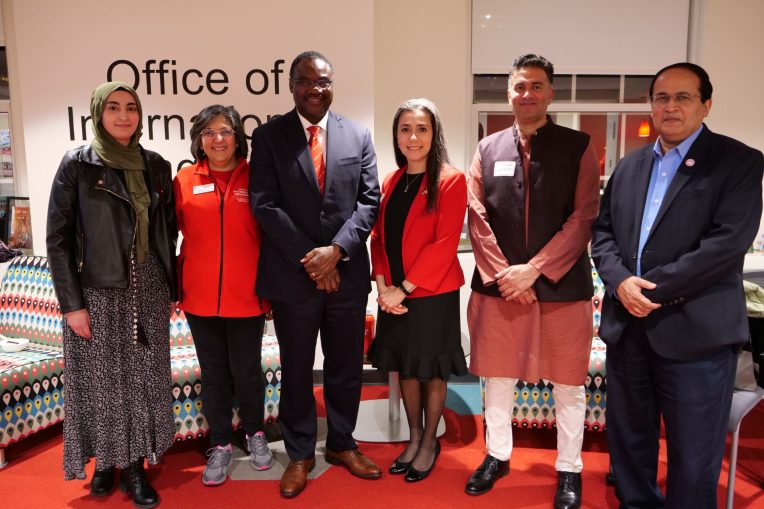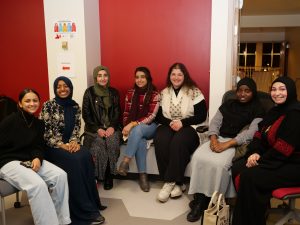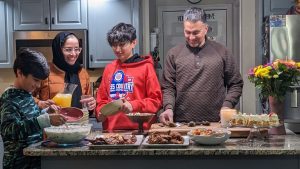The Office of International Engagement hosted an iftar dinner last week as part of the Indian Cultural Festival. President Aondover Tarhule made opening remarks followed by an introduction to Ramadan from Dr. Iftikhar Haider, instructional assistant professor for the academic English and pathways Program.
Dr. Tarhule welcomed international and domestic students along with faculty and staff by stating, “As I reflected upon these tenets of Ramadan in preparation to join you tonight, I appreciated how they align with some of Illinois State’s own institutional values. In particular, Illinois State strives to foster a sense of community, a place where all are welcome and have a sense of belonging. Furthermore, we try to model a campus culture dedicated to equity, diversity, access, and embodies mutual respect.”
Eaman Saleh, the president of the Muslim Student Association (MSA) and senior molecular and cellular biology major, talked about the community she has found at Illinois State. “I grew up in the Middle East and Ramadan was always a time of coming together as a community to forgive, love, and share spiritual moments together,” she said. “Being away from home during this month, you would think that I would not get to experience those exact sentiments; however, being part of the MSA has done the opposite.”
Participants learned more about Ramadan, fasting, and iftar. Iftar is the meal that Muslims eat when they break the fast at sundown during Ramadan. Haider finished his presentation just before sundown so that everyone present could have a moment of silence before collectively breaking the fast with dates and water followed by a congregational prayer and then dinner.
Haider discussed his personal experience. “Growing up I used to fast from an early age of 10 years. All family members wait for the moon sighting news and celebrate the arrival/start of holy month of Ramadan. Extended family members visit each other and go to mosque for congregational prayers together,” he said. “Since the month of Ramadan follows the lunar calendar, every Ramadan experience is different. The first couple of days of fasting are harder; thirst is harder as compared to eating. I usually meditate or do prep work for cooking to keep myself busy. I also meditate more during fasting; there are long congregational prayers after breaking the fast. So overall, Ramadan is great spiritual experience teaching compassion and forbearance.”
OIE Executive Director Roopa Rawjee discussed the significance of the iftar dinner as part of the Indian Cultural Festival hosted by OIE and Heartland Community College. “We are so happy that the festival occurred during the holy month of Ramadan!” Dr. Rawjee said. “Our Muslim brothers and sisters are an important part of India’s culture, so this was a wonderful opportunity to learn and celebrate in community.”



